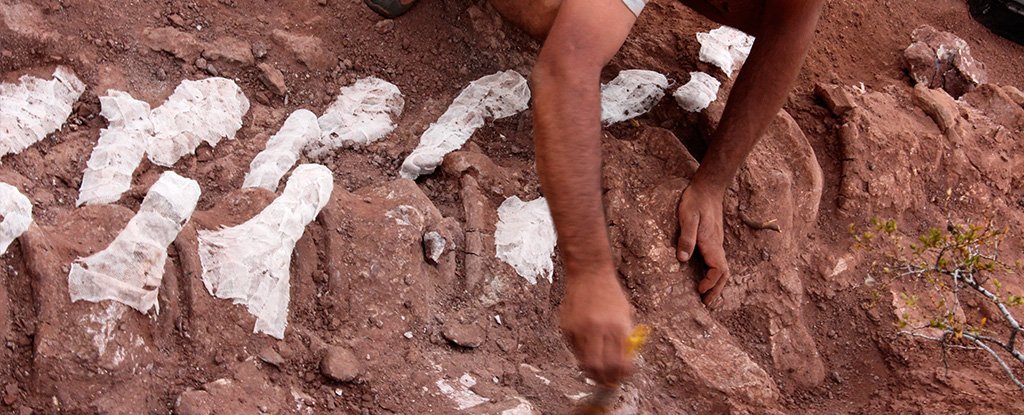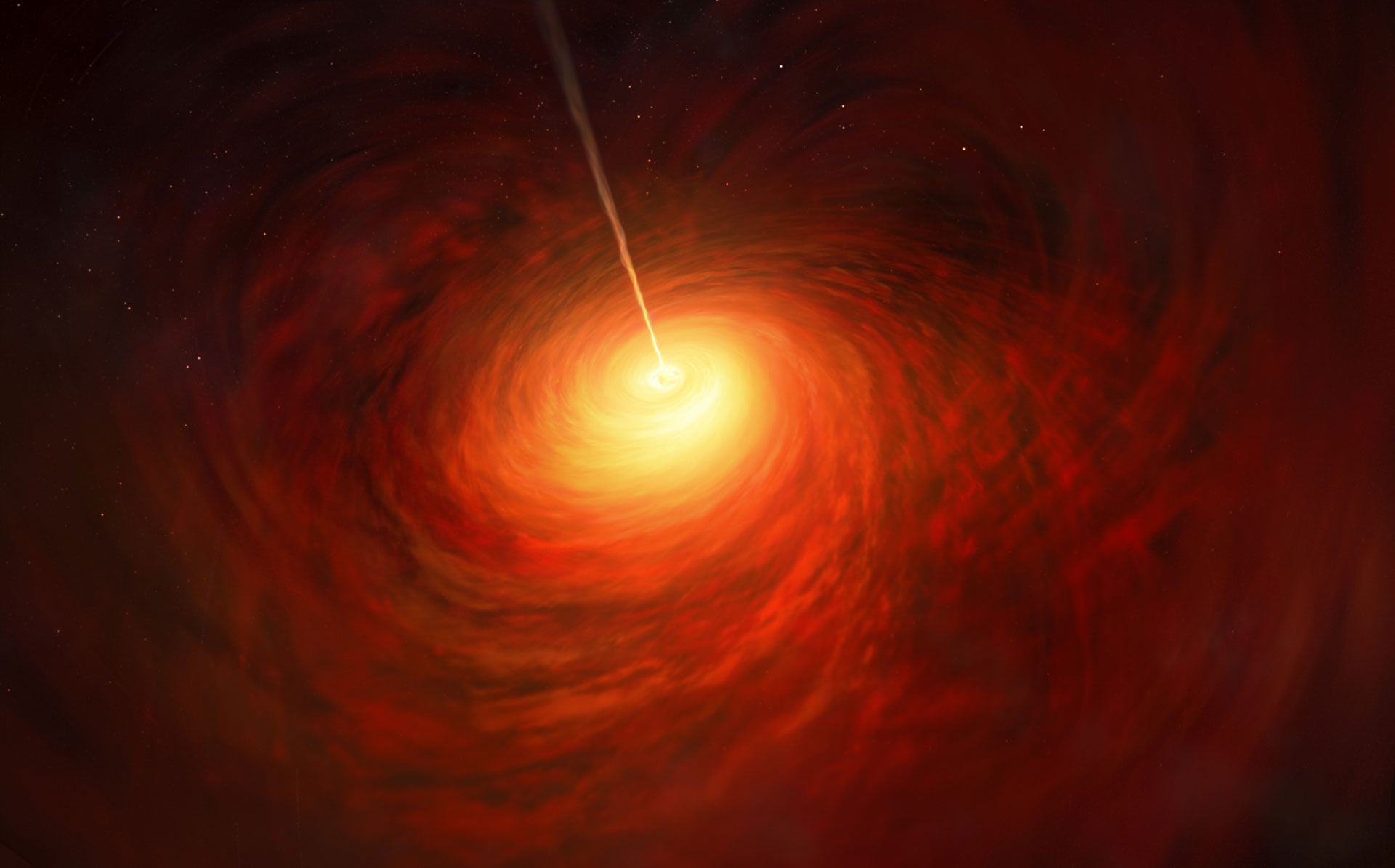Scientists have discovered massive 98 million-year-old fossils in southwestern Argentina that they say may belong to the largest dinosaur ever discovered.
The human-sized fossilized bone pieces belonging to the giant serpentine appear to be 10-20 percent larger than those attributed to Patagotitan swimsuitThe largest dinosaur ever identified, According to Wednesday’s statement From the CTYS Scientific Agency of the National University of Latanza.
Sauropods were enormous, long-necked, and plant-eating Dinosaurs – the largest terrestrial creature that ever lived.
between them, Patagotitan swimsuit, Also from Argentina, it weighed about 70 tons and was 40 meters (131 ft) long, or about the length of four school buses.
(Jose Luis Carblido / CTyS-UNLaM / AFP)
Alejandro Otero of the Argentine Museo de La Plata is working on assembling a new dinosaur resemblance from twenty vertebrae and pieces of pelvic bones that have been discovered so far.
He has Published a paper On The Anonymous Dinosaur For The Scientific Journal Cretaceous search, according to University statement.
The search continues for more body parts buried deep in the rocks. For scientists, the holy grail will be the femur or humerus bone, which helps estimate the body mass of a long-extinct creature.
The massive fossils were discovered in 2012 in the Neuquen River Valley, but excavations only began in 2015, according to paleontologist Jose Luis Carbalido of the Egidio Feroglio Museum.

“We have more than half of the tail, and a lot of thigh bones,” said Carbalido, who also worked on the classification. Patagotitan Several years ago.
“It’s clearly still in the rock, so we have some more years to dig.”
Geologist Alberto Garrido, director of the Museum of Natural Sciences in Zabala, added that the huge skeleton was found in a layer of rocks dating back about 98 million years during the High Cretaceous period.
“We suspect that the sample may be complete or nearly complete,” he said.
“Everything depends on what happens with the fossils. But regardless of whether they are larger (than Patagotitan) Or not, the discovery of a healthy dinosaur in these dimensions is new.
© Agence France-Presse

“Analitikas. Kūrėjas. Zombių fanatikas. Aistringas kelionių narkomanas. Popkultūros ekspertas. Alkoholio gerbėjas”.







